 | | | 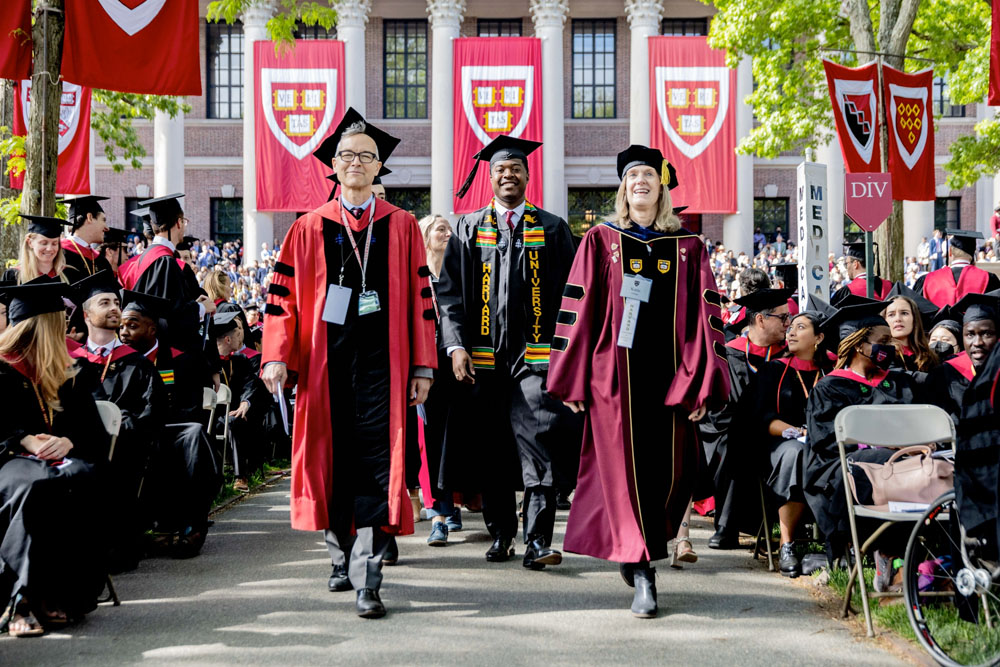 May is the month of graduation and celebration for most American colleges and universities, with ceremonies steeped in tradition and medieval garb, along with boisterous cheering, beach ball batting, and champagne slurping. And, despite the continuing and dangerous right-wing assaults on academic freedom, funding, and even curricular content, the nation’s campuses are continuing beacons of hope – carrying out research, teaching, civic engagement, and serious sustainability partnerships and projects in the face of the climate crisis. There is much to celebrate. May is the month of graduation and celebration for most American colleges and universities, with ceremonies steeped in tradition and medieval garb, along with boisterous cheering, beach ball batting, and champagne slurping. And, despite the continuing and dangerous right-wing assaults on academic freedom, funding, and even curricular content, the nation’s campuses are continuing beacons of hope – carrying out research, teaching, civic engagement, and serious sustainability partnerships and projects in the face of the climate crisis. There is much to celebrate.
 In this issue of the RCC Campus Dispatch, we spotlight successes at colleges that are members of the RCC Campus Network (RCCN) like Catawba College in Salisbury, North Carolina, a small liberal arts college that is the first campus in the Southeast to reach zero net emissions, even ahead of its own ambitious schedule. And, at Duke University, we hail the appointment of Dean Toddi Steelman of the Nicholas School of the Environment to the new, cabinet-level position of Vice President and Vice Provost for Climate and Sustainability. In an exclusive interview for the Rachel Carson Council, Steelman spoke with RCC Duke Stanback Fellow Emma Brentjens about the possibilities and perils of her new position, including dealing with divestment. In this issue of the RCC Campus Dispatch, we spotlight successes at colleges that are members of the RCC Campus Network (RCCN) like Catawba College in Salisbury, North Carolina, a small liberal arts college that is the first campus in the Southeast to reach zero net emissions, even ahead of its own ambitious schedule. And, at Duke University, we hail the appointment of Dean Toddi Steelman of the Nicholas School of the Environment to the new, cabinet-level position of Vice President and Vice Provost for Climate and Sustainability. In an exclusive interview for the Rachel Carson Council, Steelman spoke with RCC Duke Stanback Fellow Emma Brentjens about the possibilities and perils of her new position, including dealing with divestment. RCC’s Claudia Steiner also highlights the newest addition to the RCC Campus Network, Drexel University in West Philadelphia, where she traveled to get a sense of the changes in environment awareness on campus since Drexel was one of the historic host campuses of the first Earth Day in 1970 and is now a leader in sustainability. The progress toward environmental and climate engagement on today’s American campuses is also reflected in innovative efforts like one with food forests and urban farms designed for the city of San Antonio by the Natural Capital Project at Stanford’s Doerr School of Sustainability. In our "Events" section, you can also visit Yale’s 2023 New Horizons in Conservation Conference focusing on environmental justice. Perhaps most worth celebrating is the presence of a new generation of environment and climate leaders on campus who are worried about the climate and their future and have decided to start a lifelong commitment to educating, organizing, and taking action. In “RCC Fellows Speak Out” you will find the thoughts of RCC Fellows like Joy Reeves who recognizes the reality of climate anxiety and urges action as an antidote. Reeves has already written her own book on the subject (Growing Up in the Grassroots) and her piece is a nice segue into our “Books” section and a fascinating look at climate anxiety from Britt Wray in her Generation Dread: Finding Purpose in an Age of Climate Change. (Penguin Random House). So, yes, there is plenty to worry about in higher education and the climate crisis. The antidote? Feel the peril and then join with others, across the generations, at campuses and communities nationwide to do something about it. Research, write, teach, invent, organize, protest, lobby, and urge others to join you. — Bob Musil, President & CEO and Mackenzie Bodman, Associate Director, Civic and Campus Engagement. | | | | | | | | 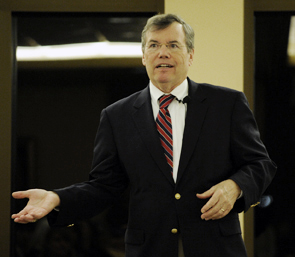 Bob Musil is the President & CEO of the Rachel Carson Council and author of Rachel Carson and Her Sisters: Extraordinary Women Who Have Shaped America’s Environment (Rutgers, 2016) and Washington in Spring: A Nature Journal for a Changing Capital (Bartleby, 2016). He is also the editor of the forthcoming annotated edition from Rutgers University Press of Rachel Carson’s Under the Sea-Wind with his Introduction, updated marine science, and historic and contemporary illustrations and photographs. Bob Musil is the President & CEO of the Rachel Carson Council and author of Rachel Carson and Her Sisters: Extraordinary Women Who Have Shaped America’s Environment (Rutgers, 2016) and Washington in Spring: A Nature Journal for a Changing Capital (Bartleby, 2016). He is also the editor of the forthcoming annotated edition from Rutgers University Press of Rachel Carson’s Under the Sea-Wind with his Introduction, updated marine science, and historic and contemporary illustrations and photographs. 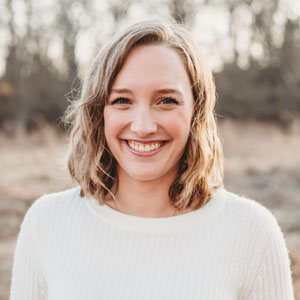 Mackenzie Bodman is the Associate Director of Civic and Campus Engagement for the Rachel Carson Council. An advocate for environmental justice, climate change and policy, Mackenzie works to combine science, justice, and policy to advocate for imaginative solutions to environmental challenges. Mackenzie Bodman is the Associate Director of Civic and Campus Engagement for the Rachel Carson Council. An advocate for environmental justice, climate change and policy, Mackenzie works to combine science, justice, and policy to advocate for imaginative solutions to environmental challenges. | | | | | | Catawba College Achieves Carbon Neutrality Seven Years Ahead of 2030 Goal Catawba College today announced that the school successfully achieved full carbon neutrality seven years ahead of its 2030 climate commitment. Second Nature, a non-profit organization working to accelerate climate action in and through higher education, confirmed Catawba College has become the 13th college nationwide and first institute of higher learning in the Southeast to meet the group’s high standards for determining carbon neutrality. | | | | | | | | Toddi Steelman Appointed to Lead Duke Climate Commitment Toddi Steelman, the Stanback Dean of Duke’s Nicholas School of the Environment, has been appointed to a new leadership position overseeing the Duke Climate Commitment, President Vincent Price announced Friday. She will conclude her service as Stanback Dean of the Nicholas School of the Environment to assume the new role, which begins July 1. | | | | | | | | Possibilities and Perils for Duke’s New Climate Vice President On May 5th, eight months after Duke University launched its Climate Commitment, the school announced that Dr. Toddi Steelman, former Stanback Dean of the Nicholas School of the Environment, was appointed as vice president and vice provost for climate and sustainability. She will lead the new Office of Climate and Sustainability starting in July. Steelman spoke to the importance of creating more space for the Climate Commitment, a university-wide initiative to find solutions that support climate change mitigation, sustainability, and resilience. | | | | | | | | Drexel University and the Earth Day Awakening The year was 1970. The energy in West Philadelphia was like lightning in a bottle. Activists, researchers, professors, students, and townspeople gathered to chant, protest, and lay out demands that culminated into something greater than the sum of their parts; greater even than the sum of tens of thousands of demonstrations around the country populated by over twenty million Americans: the makings of a movement. The Rachel Carson Council took a trip to West Philadelphia on Earth Day 2023 to see where it all came alive. | | | | | | | | All Hands on Deck: Citizen Science and Climate Change? The sun peeks over the horizon, just enough to toss lemon-colored rays blindingly in my face and illuminate exhales like puffs of smoke. After a moment of holding my breath, I catch the sound again. A twip twip and taw-wee, followed by tussling dry leaves. The bird I was hunting, the Eastern Towhee, emerges from the cane break, scratching sand on his peachy belly and dusting black feathers gray. Others join the sand bath, picking mites off one another and playfully nipping beaks. I mark the checklist on my phone — five more towhees for the day. | | | | | | | | You Had Nuclear War. We Have the Climate Crisis All Generations Should Empathize with Climate-Anxious Youth “Do the students roll out nap mats and curl up in the fetal position with their blankies and pacifiers while listening to her lectures?”This was just one media reaction to Professor Jennifer Atkinson at the University of Washington on the topic of climate grief: dealing with the anxiety and psychological effects that arise as we come face to face with climate change. | | | | | | | | Tulane Holds Environmental Summit This spring, the Tulane University’s Undergraduate Assembly’s Sustainability and Divestment Committee (SDC) hosted the first ever Tulane Environmental Summit. The SDC sought strong collaboration between the wide range of campus environmental organizations pushing Tulane to become a more sustainable and environmentally just institution. Some 30 representatives from organizations joined an open forum discussion for students to discuss how their organizations could work more closely to achieve their respective goals. | | | | | | | | | | For the Birds: Memory and Endangered Species Holding a $2 hotdog and wearing a wool scarf and fedora bought from a street vendor, my 11-year-old self was perfectly equipped for April in New York City. My mom's friend was taking me on a tour of the city, and we had just spent several hours gaping our way through the American Museum of Natural History (AMNH) where I was fascinated by the Leonard C. Sanford Hall of North American Birds. I was surrounded by realistic dioramas with birds in their natural habitat, including one by noted ornithologist Frank Chapman. | | | | | | | | Food Forests and Urban Farms Hold Promise of Addressing Numerous Problems at Once Stanford’s Natural Capital Project presented a new report to the San Antonio city council on May 25 about ways to strategically and equitably scale-up urban agriculture. What if you could grow fresh food where it is most needed, cost-effectively reduce heat-related deaths, and create green space for the local community? What if you could also reduce flooding and help mitigate climate change? | | | | | | | | Commentary: Climate Change, Maryland, and the Expanding Role of Universities In 2022, with the passage of the Climate Solutions Act, the state of Maryland set the most ambitious greenhouse gas emissions reduction goals of any state in the U.S. The Act requires the state to reduce emissions by 60% from 2006 levels by 2031 and to achieve net-zero by 2045. And with the election of Governor Wes Moore at the end of 2022, this critical work was enhanced with his goal of ensuring that Maryland generates 100% clean energy by 2035. | | | | | | | | Officials, Advocates Answer Questions on Solar, Wind Power “What happens to solar panels during a hurricane?” This was one of the first questions asked during a renewable energy symposium in Carteret Community College’s Joslyn Hall the week of Earth Day. “Being a company based here on the coast, we are well aware that there are environmental challenges,” including salty air, strong winds and storms. | | | | | | | | The New York Climate Exchange The New York Climate Exchange will be a first-of-its-kind international center for developing and deploying dynamic solutions to our global climate crisis, while also acting as a hub for New Yorkers to benefit from the new green economy. In addition to convening the world’s leaders and climate experts, the center will host job-training and skills-building programs for local residents to help them launch successful careers that improve our regional environment. | | | | | | | | New Horizons in Conservation Conference Highlights Progress, Challenges in Environmental Justice From the practical implications and implementation of the Biden Administration’s Justice40 initiative to inequities in grant funding and salaries at environmental organizations, to equal access to the outdoors and green spaces, the 2023 New Horizons in Conservation Conference was both a barometer of the progress achieved and of the still-significant challenges facing communities of color, and all underrepresented communities, in the environmental space. | | | | | | | | Generation Dread Finding Purpose in an Age of Climate Crisis By Britt Wray 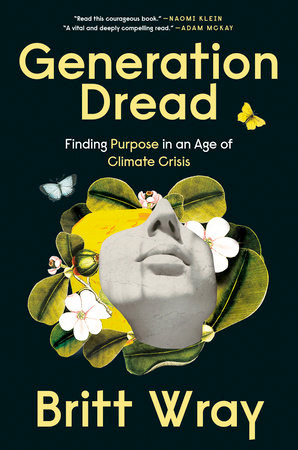 FINALIST FOR THE GOVERNOR GENERAL’S LITERARY AWARD A CBC BEST CANADIAN NONFICTION BOOK OF 2022 AN INDIGO TOP TEN BEST SELF-HELP BOOK OF 2022 FINALIST FOR THE GOVERNOR GENERAL’S LITERARY AWARD A CBC BEST CANADIAN NONFICTION BOOK OF 2022 AN INDIGO TOP TEN BEST SELF-HELP BOOK OF 2022
“A vital and deeply compelling read.” —Adam McKay, award-winning writer, director and producer (Don’t Look Up
“Britt Wray shows that addressing global climate change begins with attending to the climate within.” —Dr. Gabor Maté, author of The Myth of Normal
“Read this courageous book.” —Naomi Klein
An impassioned generational perspective on how to stay sane amid climate disruption. Climate and environment-related fears and anxieties are on the rise everywhere. As with any type of stress, eco-anxiety can lead to lead to burnout, avoidance, or a disturbance of daily functioning.
In Generation Dread, Britt Wray seamlessly merges scientific knowledge with emotional insight to show how these intense feelings are a healthy response to the troubled state of the world. The first crucial step toward becoming an engaged steward of the planet is connecting with our climate emotions, seeing them as a sign of humanity, and learning how to live with them. We have to face and value eco-anxiety, Wray argues, before we can conquer the deeply ingrained, widespread reactions of denial and disavowal that have led humanity to this alarming period of ecological decline. Click here to read more and purchase | | | | | | Plan Your 2023 Campus Events with RCC now! RCC prides itself on its National Campus Network of 65 colleges and universities. We are working to engage faculty members, students, and administrators in our efforts for a more just and sustainable world. With our growing fellowship program, our presence on campuses across the country has never been greater. Contact RCC today to bring our staff to your campus for lectures, workshops, or meetings to help find the best ways to engage your faculty and students in the efforts against climate change, environmental justice, and the work of the Rachel Carson Council. Campus Visits with RCC President, Dr. Robert K. Musil 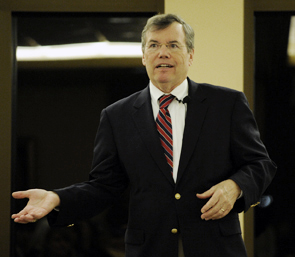 RCC President & CEO, Dr. Robert K. Musil, a national leader in climate change, environmental justice and health is again available to book for in-person campus speaking events! Musil has been called “informative, challenging and inspirational all at once.” He is “motivational” with “intellectual depth” and “extraordinary impact.” RCC President & CEO, Dr. Robert K. Musil, a national leader in climate change, environmental justice and health is again available to book for in-person campus speaking events! Musil has been called “informative, challenging and inspirational all at once.” He is “motivational” with “intellectual depth” and “extraordinary impact.”
Dr. Musil is available for campus lectures and visits involving classes, meetings with campus and community groups, consultations with faculty and administrators, or for Earth Day, Commencement, and other special events. Stays range from one to three days. Reduced fees are in place for 2023-2024 and can be designed to meet reduced budgets. To arrange a campus visit with Dr. Musil, contact the RCC President’s Office at office@rachelcarsoncouncil.org or call 301-214-2400. The RCC also offers talks, classes, and workshops on student engagement, activism, sustainability, and the RCC Fellowship program with, Associate Director of Civic and Campus Engagement, Mackenzie Bodman, Associate Director of Climate Justice, Bella Jaramillo, Associate Director of Communications, Claudia Steiner, Director of Policy and Programs, Maya Cohn. To arrange, contact Associate Director of Civic and Campus Engagement, Mackenzie Bodman. | | | | | | | |  The Rachel Carson Council Depends on Tax-deductible Gifts From Concerned Individuals Like You. Please Help If You can. The Rachel Carson Council Depends on Tax-deductible Gifts From Concerned Individuals Like You. Please Help If You can. | | | |  Sign Up Here to Receive the RCC E-News and Other RCC Newsletters, Information and Alerts. Sign Up Here to Receive the RCC E-News and Other RCC Newsletters, Information and Alerts. | | | | | | | | | | | |